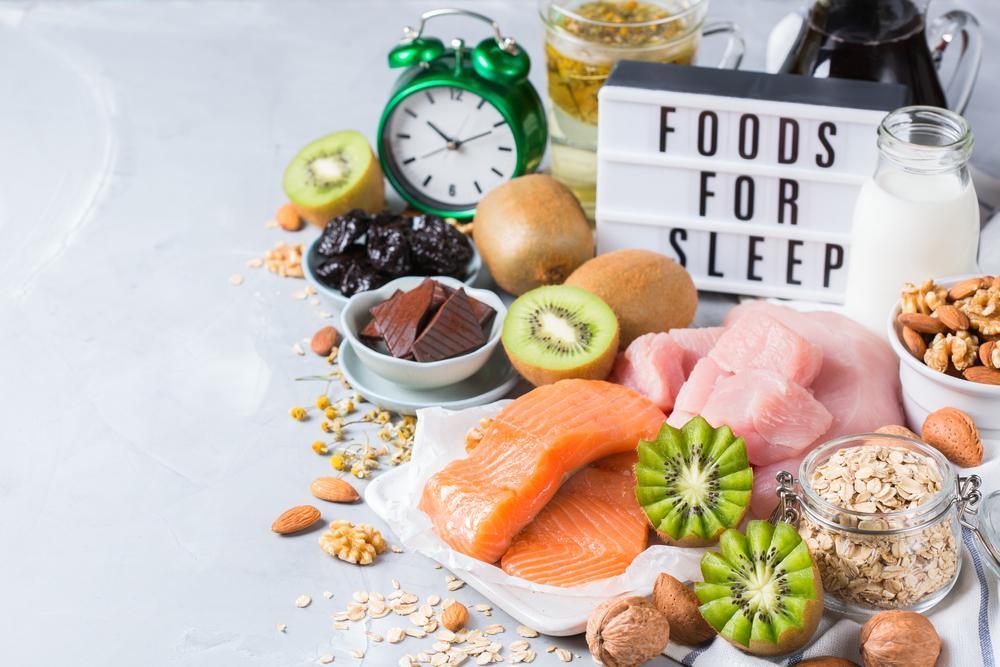In a world where sleep is becoming a precious commodity, many of us are searching for solutions to improve our quality of rest. One often overlooked aspect that can have a significant impact on our sleep patterns is our diet. Making simple dietary changes can be a powerful tool in combating insomnia and achieving a blissful night’s sleep. In this article, we explore the relationship between food and sleep and offer practical tips to help you make the necessary adjustments for a restful night ahead.

Understanding the Role of Diet in Insomnia
When it comes to improving insomnia through dietary changes, it is important to focus on consuming foods that promote relaxation and sleep. Incorporating the right nutrients into your diet can help regulate your sleep-wake cycle and improve the quality of your sleep. Here are some dietary tips to help you combat insomnia:
- Avoid Caffeine: Limit your intake of caffeine, especially in the afternoon and evening. Caffeine can disrupt your sleep cycle and make it harder for you to fall asleep.
- Include Magnesium-Rich Foods: Magnesium is known for its calming effect on the body. Incorporate foods like nuts, seeds, and leafy green vegetables into your diet to help improve sleep quality.
- Try Herbal Teas: Herbal teas like chamomile and valerian root have been shown to promote relaxation and improve sleep. Enjoy a cup of herbal tea before bedtime to help you wind down.
Impact of Caffeine and Sugar on Sleep Quality
Are you struggling to get a good night’s sleep? It might be time to take a closer look at what you’re consuming throughout the day. Caffeine and sugar are two common culprits that can impact the quality of your sleep. Making small dietary changes can help improve your insomnia and ensure you get the rest you need to feel refreshed and rejuvenated each day.
Incorporating Sleep-Inducing Foods into Your Diet
Are you struggling with insomnia and looking for natural ways to improve your sleep quality? One simple yet effective way to combat sleepless nights is by . By making a few dietary changes, you can potentially improve your sleep patterns and overall well-being.
**Foods to Include in Your Diet:**
- Cherries: Cherries are a natural source of melatonin, a hormone that helps regulate sleep-wake cycles.
- Almonds: Almonds are rich in magnesium, which can help promote relaxation and better sleep.
- Whole grains: Whole grains like oats and barley contain tryptophan, an amino acid that can help induce sleep.
**Foods to Avoid Before Bed:**
- Caffeine: Avoid consuming caffeine-containing foods and drinks in the evening, as they can disrupt your sleep.
- Spicy foods: Spicy foods can cause heartburn and indigestion, making it difficult to fall asleep.
- Alcohol: While alcohol may initially make you feel drowsy, it can disrupt your sleep cycle and lead to poor-quality sleep.
Creating a Balanced Diet for Better Sleep
When it comes to battling insomnia, making changes to your diet can have a significant impact on the quality of your sleep. By incorporating a variety of nutrient-rich foods into your meals, you can create a balanced diet that promotes relaxation and a restful night’s rest.
One key element in a sleep-friendly diet is **avoiding caffeine** in the hours leading up to bedtime. Caffeine is a stimulant that can disrupt your natural sleep cycle, making it harder to fall asleep and stay asleep throughout the night. Instead, opt for **herbal teas** like chamomile or valerian root, which have calming properties that can help you unwind before bed.
Additionally, **eating foods high in magnesium** can also aid in improving sleep quality. Magnesium is a mineral that helps to relax the muscles and promote a sense of calm. Foods like **spinach, almonds, and avocados** are all excellent sources of magnesium that can be easily incorporated into your daily meals.
As you embark on your journey to improve your insomnia through dietary changes, remember that it may take time to see results. Be patient with yourself and allow your body to adjust to the new ways of nourishment. By focusing on incorporating more sleep-promoting foods and avoiding those that can disrupt your sleep, you are taking a proactive step towards achieving a better night’s rest. With consistency and dedication, you can create a bedtime routine that supports your overall well-being and helps you drift off into peaceful slumber. So here’s to better sleep and brighter mornings ahead. Sweet dreams!
